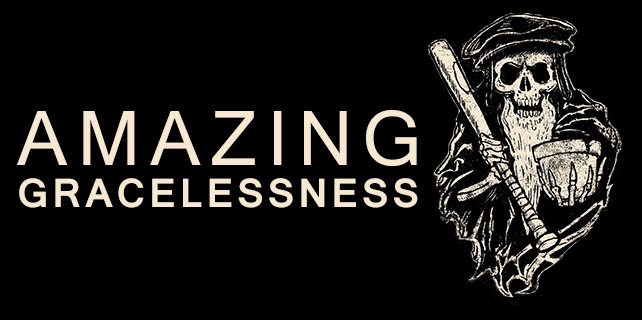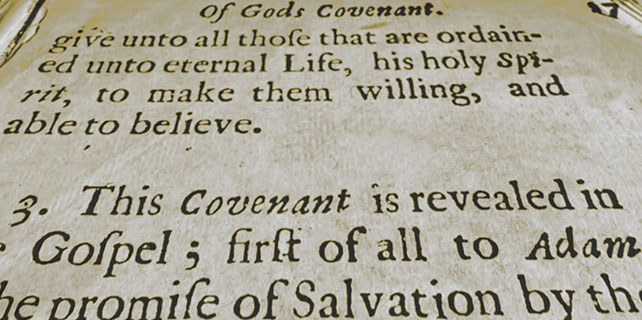The Humpty Dumpty Syndrome
Who could forget the memorable interchange between Alice and Humpty Dumpty in Lewis Carroll’s Through the Looking Glass. At one point, Alice protests Humpty’s bizarre use of words. “When I use a word,” responded Humpty in a rather scornful tone, “it means just what I choose it to mean — neither more nor less.” Getting the better of him, Alice retorts, “The question is . . . whether you can make words mean so many different things.”After seeing how some Promise Keepers speakers and writers press Scripture into service to justify all sorts of teachings, one is left to ask Alice’s penetrating question all over again — whether Promise Keepers can make the words of Scripture mean so many different things. We call this problem the Humpty Dumpty syndrome, and it is more prevalent than most would care to admit.
Douglas Wilson
The Federal Division: Excursus II
“grace is a covenantal relationship”
“At the same time, grace is what it is, and cannot be redefined by sinful man into anything else. The grace of God in Christ saves us from our sins.” —Douglas Wilson Continue reading



